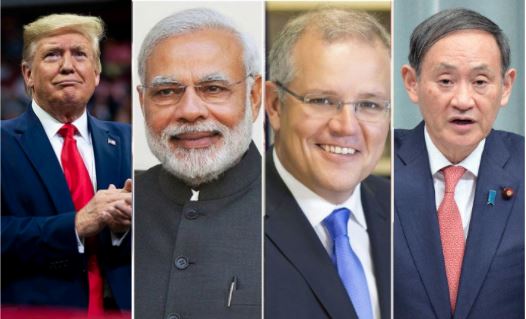The Chinese have to be booted out of space if the solar system is to be saved from the middle kingdom’s unending expansionist appetite. While China’s plans of territorial colonisation across Asia are being foiled by one country after the other, the free and democratic world must now focus on preventing a Chinese sophisticated space exploration and navigation programme, while also working to dismantle China’s plans to have its own space station by 2022. While the United States has already started to work in this direction, the free world must follow its lead as well, if the growing universal threat of China is to be contained.
China is in the process of getting itself the ‘Chinese International Space Station’ by 2022, in collaboration with countries like Kenya, France, Germany, Peru, among others. Meanwhile, the US-developed International Space Station, which has been in orbit since 2000 is set to be decommissioned by 2030, which essentially means that the United States is in the lookout for the development of another space station.
NASA Chief, Jim Bridenstine is said to have conveyed to US lawmakers on Wednesday that it was crucial for the US to maintain a presence in Earth’s orbit after the International Space Station is decommissioned, so that China does not gain a strategic advantage in the sphere due to a vacuum left behind, albeit temporarily, by the United States.
“China is rapidly building what they call the ‘Chinese International Space Station’, and they’re rapidly marketing that space station to all of our international partners,” Bridenstine said. “It would be a tragedy, if, after all of his time, and all of this effort, we were to abandon low Earth orbit and cede that territory,” he added. The warning for the US coming from the NASA Chief himself is expected to bear fruits, as the Trump administration is in any case looking to take on China on all fronts possible.
The NASA chief, meanwhile, has also proposed that the US need not make a new space station all by itself, rather, he was suggestive of a public-private partnership where Nasa can deal with commercial space station providers. “I don’t think it’s in the interest of the nation to build another International Space Station – I do think it’s in the interest of the nation to support commercial industry, where Nasa is a customer,” he said.
What would be ideal, however, for the United States and the democratic world to keep China’s space ambitions at bay, is a space alliance between members of the QUAD – comprising of the US, India, Japan and Australia. Already, a military and geostrategic alliance seems to be getting worked out between the four allies, and the expansion of the same to the space, in order to cull the Chinese threat, would work wonders.
The said arrangement between members of the QUAD could prove to be a bonanza, as each country would have something special and unique to offer for the space alliance. While the US has the advanced technological base required for the high-tech and next-gen avionics forming the backbone of the construction for space docks, not to mention the development of inter-planetary vehicles (IPVs) that would be necessary for the transport of the human passengers, crew, and machinery; Australia’s natural resources will come in handy for the manufacture of steel, a material required in large quantities for the construction of a space dock.
India, with its highly educated and experienced space workforce, which comes as one the cheapest monetarily among all other QUAD members, and perhaps in the world too, will provide for the necessary labour required in the space alliance. Japan could pitch in with its advanced robotics and automated machinery in the four-nation space endeavour.
The biggest plus point of the arrangement relating to space between the QUAD members, however, would be their collective desire to see China’s attempts at achieving space hegemony fail. India, Australia, Japan and the US would be working as a formidable front to ensure that China is tamed not just on the planet, but also in the space surrounding it.
Already, the China-Kenya partnership for the Chinese space station, which also comprises of other countries close to the US, has irked the Trump administration, which has over the years cautioned Nairobi against falling for the humongous debt trap being laid out for it by Beijing.
China was recently also kicked out by Swedish state-owned company – the Swedish Space Corporation (SSC), which announced that it would not enter into any new contracts with Chinese customers for the use of a strategic Space Tracking Station in Western Australia. China is thus going to lose access to the strategically crucial Space Tracking Station in Australia, a move that militates against the Communist nation’s navigational and Space exploration ambitions, not to mention its desperate aims at establishing an independent Global Navigation Satellite System (GNSS) for itself, much like the US-owned GPS.
In Argentina, the paper dragon’s fortified space centre, which it claims is open for the public, is facing heightened scrutiny as many within the country start realising that China is actually using the 8-ft tall barbed-wire facility for espionage and military-related purposes.
It is only prudent, as such, for the QUAD members to enter into a space alliance at the very earliest, so that China’s aims of establishing itself as a superpower outside the earth are foiled.
